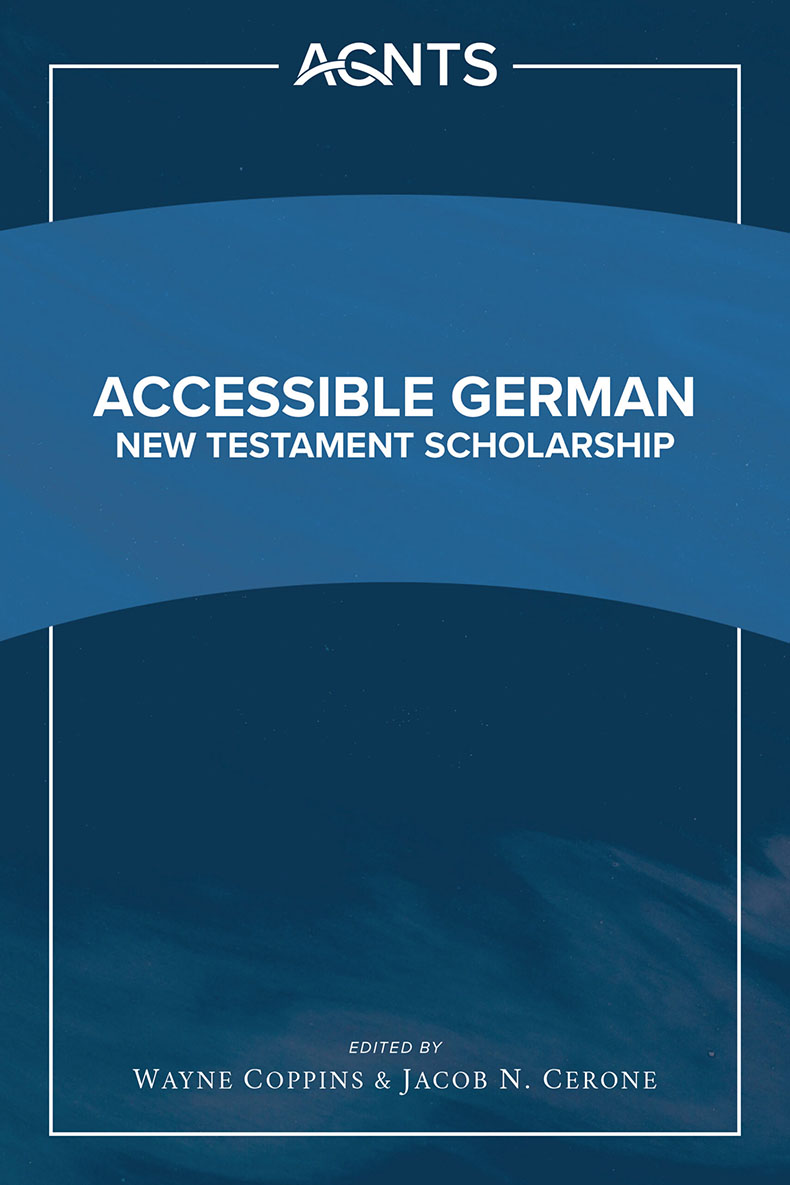Each issue of Accessible German New Testament Scholarship (AGNTS) is a curated collection of significant contributions to New Testament scholarship from the German-speaking world. The contributions have been translated and presented here as an attempt to continue bridging the continental divide, which is at times separated by more than language but also methodological and exegetical traditions. It is our hope that this issue and future issues will continue to close that divide. More generally, we seek to make German New Testament scholarship accessible not only by making it available in English translation but also by publishing it in a form that can be read by people who do not have access to a research library.
This inaugural issue of AGNTS contains a number of features that will also characterize future issues of the journal. While the main focus of the journal will be on contemporary German New Testament scholarship, the two publications by William Wrede signal our desire to include at least some older works. Sometimes this will mean reaching back to much earlier phases of New Testament scholarship, as with Wrede, but at other times it will mean including a work from the more recent past, such as from the 1950s or 1990s. In the case of Wrede, we hope that his “Self-Review of The Messianic Secret” (1901) will be widely used as a concise and effective way to introduce a new generation of students to his landmark work and that his “Letter to Adolf von Harnack on Jesus as Messiah and Paul as a New Beginning” (1905) will both provide insight into the shape of his thinking about Paul and show how he subsequently reconsidered the influential viewpoint that he developed in The Messianic Secret with respect to the question of whether Jesus regarded himself as designated to be the Messiah.
While the shape of each issue will vary, our selection of articles for the first issue intentionally signals our interest in including works by both senior and junior scholars. Thus, alongside Matthias Konradt’s study of love for enemies in Matt 5.43–48 and its early Jewish context, Peter Stuhlmacher’s retrospective on the Tübingen biblical theology, and Oda Wischmeyer’s article on canon and hermeneutics in the times of deconstruction, we have also included the conclusion to Christoph Heilig’s book Paulus als Erzähler? Eine narratologische Perspektive auf die Paulusbriefe, which began as a doctoral dissertation, and Christine Jacobi’s chapter on Irenaeus from her book Leiblich vermitteltes Leben. Vorstellungen vom Überwinden des Todes und vom Auferstehen im frühen Christentum, which is a revised version of her habilitation.
Finally, the first issue concludes with Jens Schröter’s review of James Crossley and Chris Keith, eds., The Next Quest for the Historical Jesus. As with all reviews, our goal here was to identify an especially well qualified scholar to review an especially significant book. In addition to making them maximally accessible for both German and English speakers, we hope that our publication of reviews – and other previously unpublished material – in both German and English will prove to be a valuable resource for students and scholars who are seeking to establish, improve, or revive their proficiency in reading German or English.
